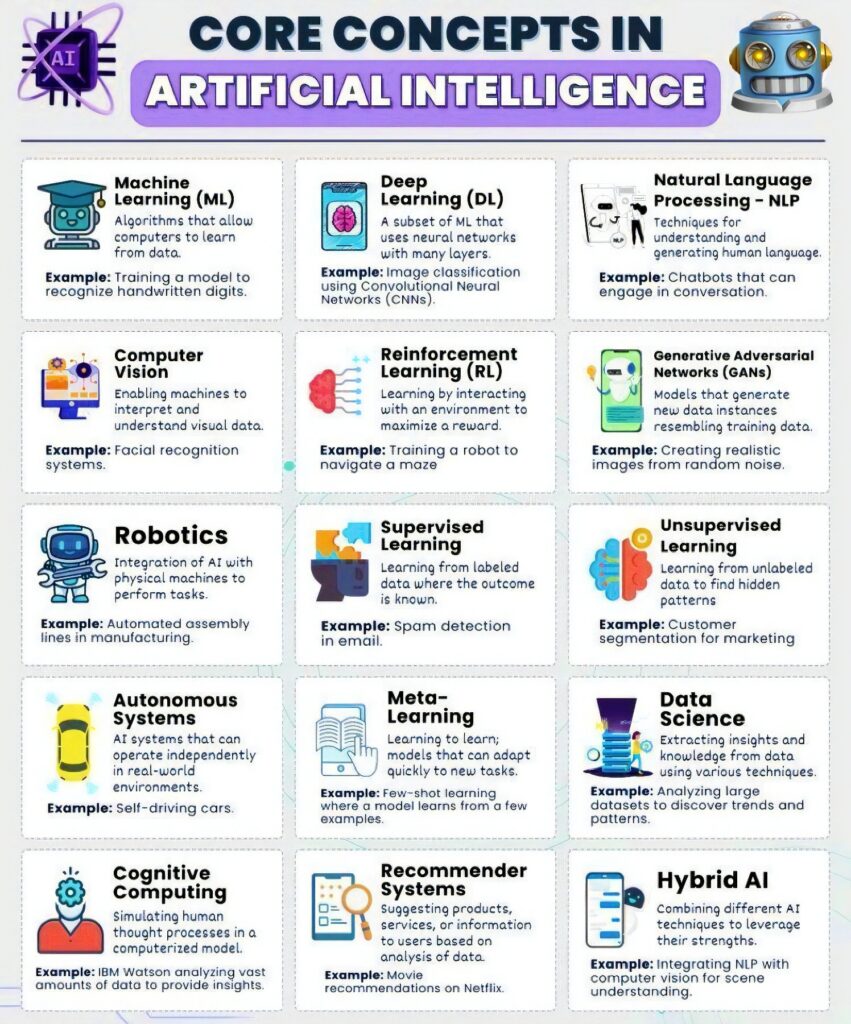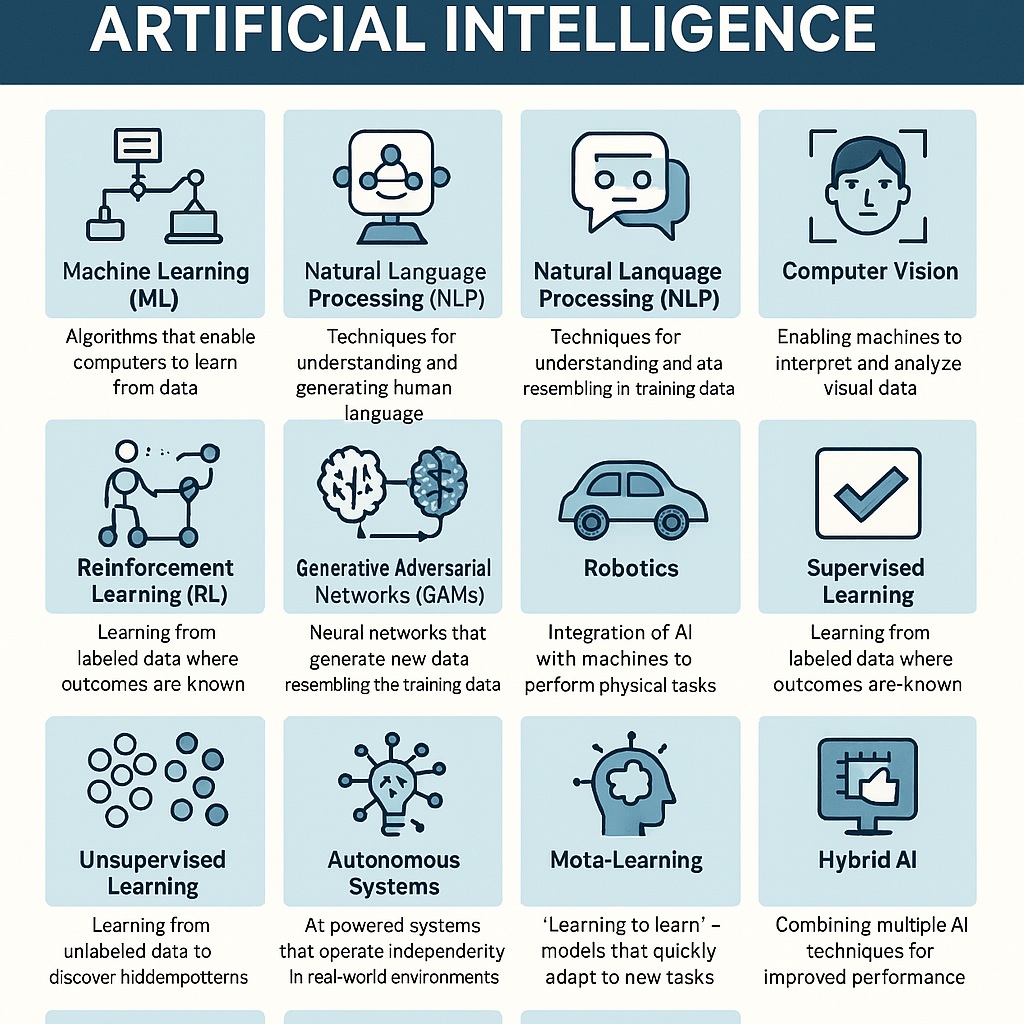Artificial Intelligence (AI) is transforming industries and redefining the way we interact with technology. From voice assistants and facial recognition to self-driving cars and intelligent chatbots, AI is embedded in various aspects of our daily lives. Understanding the core concepts of AI is essential for grasping its capabilities and potential applications.






1. Machine Learning (ML)
Algorithms that enable computers to learn from data without being explicitly programmed. Example: Training a model to recognize handwritten digits.
2. Deep Learning (DL)
A subset of ML that uses neural networks with multiple layers.
Example: Image classification using CNNs.
3. Natural Language Processing (NLP)
Techniques for understanding and generating human language.
Example: Chatbots capable of holding conversations.
4. Computer Vision
Enabling machines to interpret and analyze visual data.
Example: Facial recognition systems.
5. Reinforcement Learning (RL)
Learning through interaction with an environment to maximize a reward.
Example: Training a robot to navigate a maze.
6. Generative Adversarial Networks (GANs)
Neural networks that generate new data resembling the training data.
Example: Creating realistic images from random noise.
7. Robotics
Integration of AI with machines to perform physical tasks.
Example: Automated assembly lines.
8. Supervised Learning
Learning from labeled data where outcomes are known.
Example: Spam
9. Unsupervised Learning
Learning from unlabeled data to discover hidden patterns.
Example: Customer segmentation for marketing.
10. Autonomous Systems
AI-powered systems that operate independently in real-world environments.
Example: Self-driving cars.
11. Meta-Learning
“Learning to learn” – models that quickly adapt to new tasks.
Example: Few-shot learning from limited examples.
12. Data Science
Extracting insights from large datasets using AI and statistical tools.
Example: Discovering trends in user behavior.
13. Cognitive Computing
Simulating human thought processes through AI.
Example: IBM Watson providing decision support.
14. Recommender Systems
Suggesting products or content based on data analysis.
Example: Netflix movie recommendations.
15. Hybrid AI
Combining multiple AI techniques for improved performance.
Example: Integrating NLP with computer vision for scene understanding.
Conclusion |
As AI continues to evolve, mastering these core concepts enables professionals, developers, and enthusiasts to harness its full potential. Whether you’re building intelligent systems or simply navigating a tech-driven world, understanding the fundamentals of AI is key to shaping the future.





